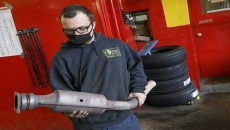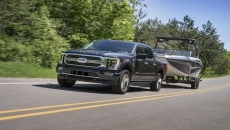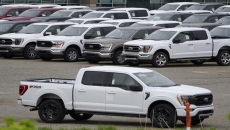According to a recent Edmunds used vehicle report, demand for used cars is dropping and so are their values as the new-car market rebounds from pandemic-induced shortages. This is especially true for 1- and 2-year-old vehicles. So there’s never been a more critical time to know whether it’s better to sell your car privately or trade it in.
Both options have their advantages and drawbacks, and the best decision largely depends on your circumstances, priorities and preferences. Edmunds’ experts run down what you need to know to make an informed decision.
SELLING PRIVATELY
Selling your vehicle privately will likely yield a higher sales price than trading in at a dealership. By doing so, you’re essentially cutting out the middleman. But you’ll likely pay for that profit in the time and energy you spend marketing your car, negotiating a sale, and managing the transaction itself. Whether a private sale is worth it comes down to time — how much you have and how you want to spend it.
When selling your vehicle, expect to create and maintain ads; respond to inquiries; schedule time for potential buyers to view and drive your vehicle; and negotiate over the final sale price. It may take weeks or months. And you’ll need to be sure you know what paperwork your state requires to legally carry out the transaction.
But there are benefits to selling privately. Besides the likelihood of getting more money for your vehicle, you also get final say on who you sell your vehicle to. If you have a strong attachment to your vehicle, you can screen the potential buyers to make sure it’s going to someone who’s going to treat it properly.
TRADING IN
Trading in your vehicle at a dealership can be a convenient option if simplicity and efficiency are your priorities, especially if you plan to buy a new vehicle from the same dealership. And it might make financial sense as well.
If you’re concerned with fielding calls and meeting strangers from the internet near your home, a trade-in would be the safer bet. The same can apply when taking cash or a check from a stranger.
Trading in also allows you to get different offers for your car, often from the comfort of your home. You can get offers from online sites such as Edmunds that you can either accept or use as leverage to get a higher offer from other dealers. It may not always work, but at least you have an option to fall back on.
There’s also an often overlooked tax benefit when trading in and buying from the same dealership. Many states allow the value of your trade-in vehicle to be deducted from the sales price of the car you’re buying. In other words, in those states, you’ll only pay sales tax on the difference in price between the vehicle you trade in and the vehicle you purchase. For example, imagine your new car costs $35,000 and the dealer gives you $20,000 for your trade-in. This means you’d only be paying sales tax on $15,000.
A dealership trade is also likely to be more convenient than selling on your own. Certainly car dealers aren’t known for being efficient, but when compared to the time and energy you may spend selling privately, this is a better choice. And you might be able to leverage a discount, trade-in bonus or other incentive when trading in your vehicle to a dealer.
Of course, a dealer needs to leave enough room for its own profit when it flips your trade-in. That’s why you’re likely to get a lower trade value than if you sold privately. Also, negotiating the price of your trade-in at the same time as your new-vehicle purchase can lead to a lot of numbers flying around. The potential confusion certainly benefits the dealer.
EDMUNDS SAYS
The decision to sell or trade in your car depends on your priorities, time constraints and comfort level with the selling process. If maximizing profit and flexibility are paramount, selling privately is the better option. But if you value convenience and efficiency, trading in your car at a dealership is the more practical choice.





